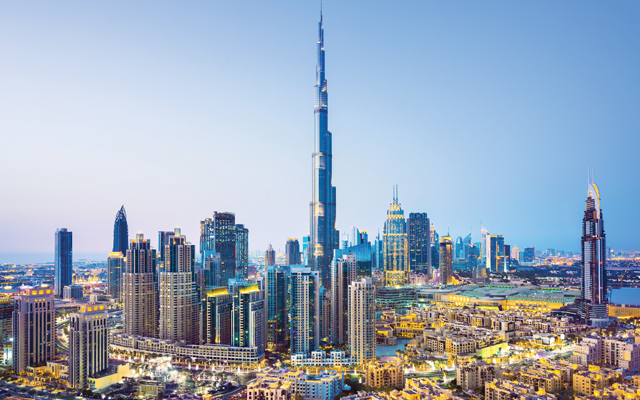Tourism numbers are on the rise, and Dubai wants more – it continues to focus on new areas like stopover travel, among others
The tourism sector in Dubai is growing strongly, aligning with the goals of the Dubai Economic Agenda (D33), one of which which is to double the size of Dubai’s economy over the next decade and consolidate its position among the top three global cities. In 2023, Dubai welcomed a record 17.15 million international overnight visitors – a 19.4 per cent year-on-year (YoY) growth over the 14.36 million tourist arrivals in 2022.
“We will continue to execute robust global and market-specific campaigns, collaborating with our key domestic and international partners. By adopting a diversified marketing approach, we aim to promote Dubai to audiences worldwide for both potential new visitors and repeat visitors,” said Issam Kazim, CEO of the Dubai Corporation for Tourism and Commerce Marketing.

Dubai’s status as a global entertainment hub has been bolstered by new attractions and a year-round calendar of business, leisure, and sporting events, which continue to attract international tourists. In 2024, Dubai is continuing to focus on key Asian markets such as China, India, South Korea, Japan, and South-east Asia for both leisure tourism and business events segments.
“These markets offer a mix of affluent travellers and growing corporate sectors, presenting opportunities for Dubai to showcase its luxury offerings, cultural experiences, and world-class infrastructure to attract visitors and business events alike,” said Bader Ali Habib, regional head of proximity markets, Dubai Department of Economy and Tourism.
The year 2024 has also begun on a positive note for Dubai, with the Emirate experiencing an 11 per cent YoY increase in international visitors from January to March. During this period, Western Europe emerged as Dubai’s largest source market, contributing 1.138 million arrivals, which accounts for a 22 per cent overall share. South Asia followed with 869,000 visitors, representing a 17 per cent share, while the CIS and Eastern Europe regions saw 817,000 visitors, making up a 16 per cent share.
Additionally, North-east Asia and South-east Asia contributed 470,000 arrivals, accounting for a nine per cent share. India has been leading the tourism growth for Dubai in Asian markets.
“For 1Q2024, we hosted about 687,000 visitors from India which is almost about 12 per cent more than the last year. One of the segments we are focusing in the Indian market is ‘stopover’ traffic. Dubai is a transit hub for Indians, especially for markets like Gujarat where people have families living in the US. Even if we get such transit travellers to visit Dubai for 24 hours, it opens new opportunities for us. We also want to capture the Indian weekend travel market,” added Habib.
Samir Mehta, chief operating officer with Desert Adventures Tourism, shared that India is the number one market for Dubai, with other key markets comprising the UK, Commonwealth of Independent States (CIS), Indonesia and Pakistan.
He added that “China has been slow to recover” due to the country’s prolonged Covid travel restrictions.
From January to March this year, Dubai’s hotels maintained a room occupancy rate of 83 per cent, while there was a two per cent YoY increase in overall room supply to more than 152,000. Total available rooms in Dubai reached 152,162 by end-March 2024, up from 148,877 rooms in March 2023, while the number of establishments stood at 832 at the end of the first quarter, compared to 814 during the same period last year.
From January to March 2024, Dubai had a total of 96,484 hotel rooms across four- and five-star establishments, representing a significant 64 per cent share of the overall hotel rooms in the city. One- to three-star hotels had a 19 per cent share of Dubai’s overall hotel market, with the category comprising 29,100 rooms. The hotel apartments segment boasted a total of 26,578 keys at the end of 1Q2024.
“Markets like the UK, CIS and India are recording strong growth. Interestingly, American travellers, though low in numbers, are showing interest in Dubai. Australia has also emerged as a meaningful market, as travellers have a stopover option on their way to Europe,” said Amanda Elder, chief commercial officer and member of the management board, Kempinski Hotels.
The Department of Economy and Tourism (DET) has taken the lead in implementing various activities under its Dubai Sustainable Tourism initiative, including the new Dubai Sustainable Tourism Stamp, which seeks to recognise hotels with the highest adherence to DET’s 19 Sustainability Requirements.











